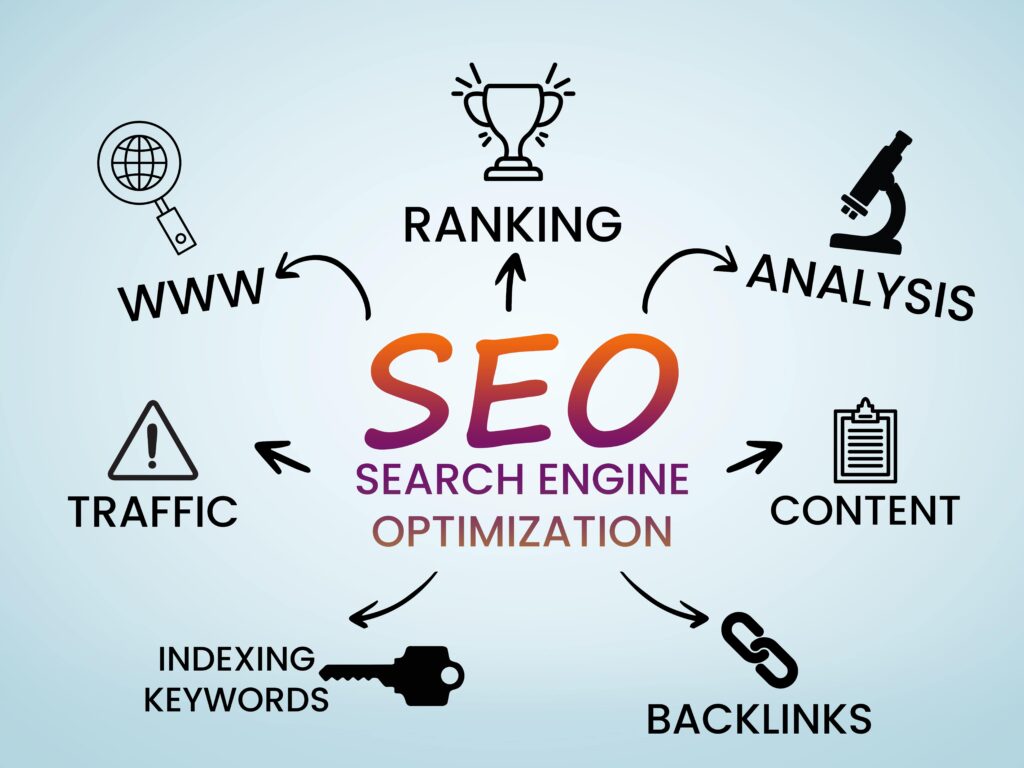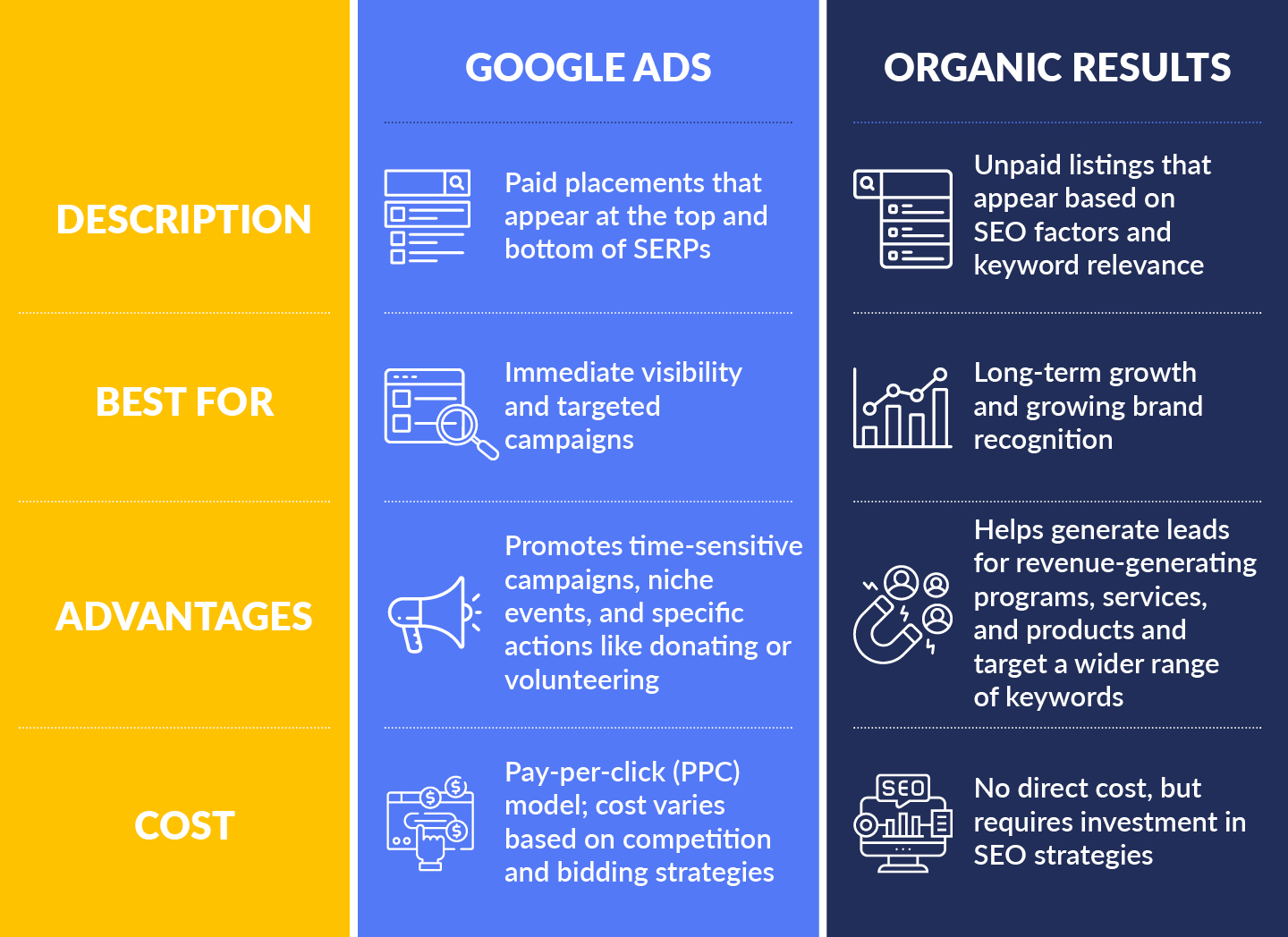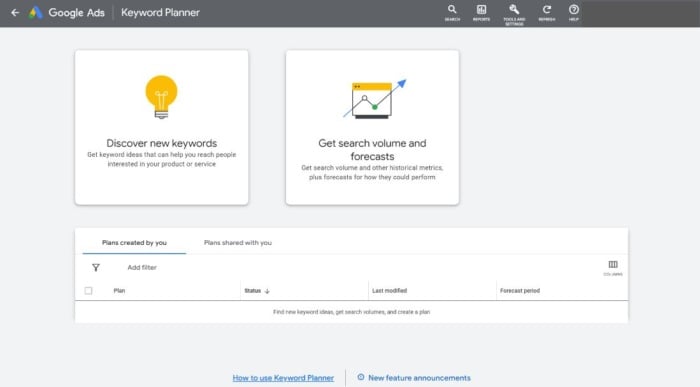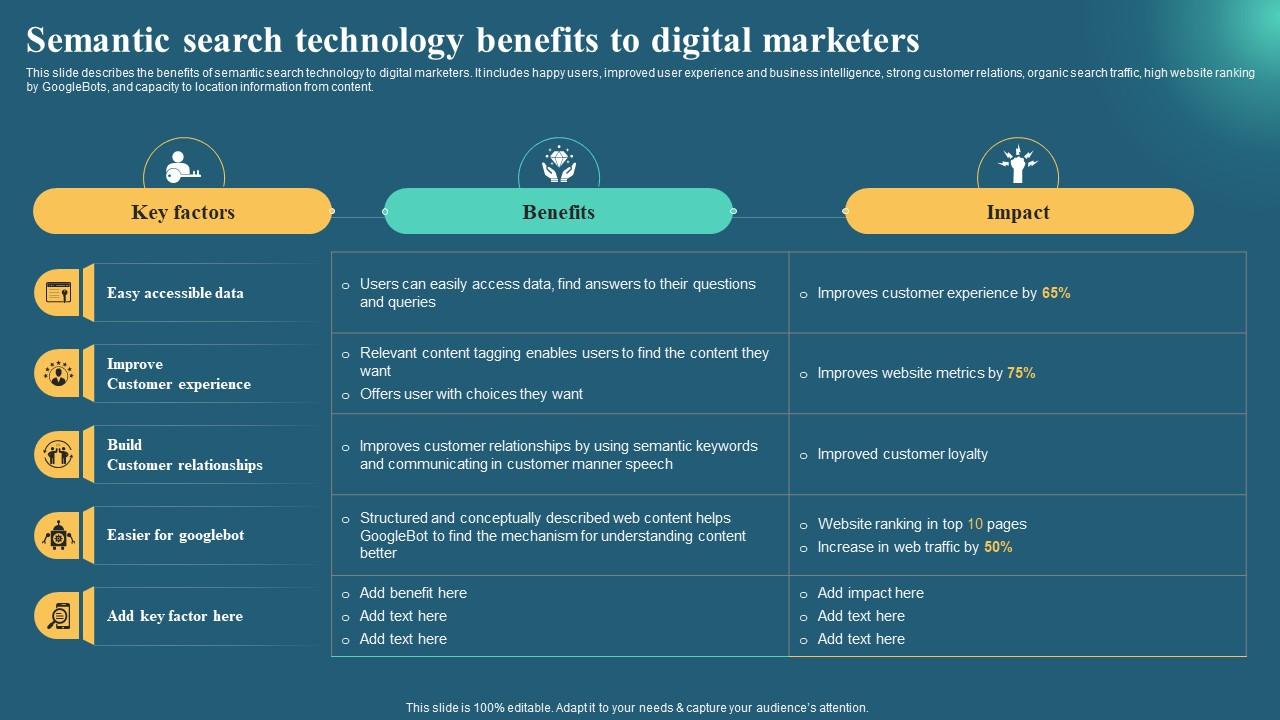
Published: Sep 24, 2024
What Is Organic Search Marketing? The Ultimate Guide for New Businesses
by: None
What Is Organic Search Marketing? The Ultimate Guide for New Businesses
Hey there, fellow marketing mavens! Zoe here, ready to spill the tea on organic search marketing. ☕ I’ve been around the block a time or two when it comes to SEO, and let me tell you, this stuff is the real deal for getting your new biz in front of the right eyeballs. So grab a seat, and let’s dive into the juicy details! 🍑
TLDR: What the heck is organic search marketing anyway, and why should you care? Let's break it down!
1️⃣ How does organic search marketing actually work?
Organic search marketing is all about optimizing your website to rank higher in search results, without paying for ads. It’s a mix of technical tweaks, killer content, and building your online street cred. When you get it right, your site shoots up the rankings, driving tons of free traffic your way!
2️⃣ Why is organic search critical for new businesses?
For new businesses, organic search is like the secret sauce to getting noticed online. Paid ads are great, but they can cost an arm and a leg. With organic search, you build long-term visibility and credibility, without breaking the bank. Plus, people trust organic results more than ads!
3️⃣ What are the key pillars of a strong organic search strategy?
A kickass organic search strategy stands on three pillars: relevance, discoverability, and authority. You gotta make sure your content matches what people are searching for, your site is easy for search engines to find and understand, and other sites are linking to you as a trusted source. Nail those three, and you’re golden!
Table of Contents
- How Organic Search Marketing Works
- Why Organic Search Matters for New Businesses
- Putting It All Together: Your Organic Search Game Plan
- The Three Pillars of Organic Search Success
How Organic Search Marketing Works
Let’s break down how organic search marketing actually works in the real world. It’s not rocket science, but it does take some savvy moves to get your website climbing those search engine rankings.
The Basics: Crawling and Indexing
First things first - search engines like Google send out little digital spiders (okay, they’re actually called “crawlers”) to explore the web. These crawlers zip around from site to site, following links and gathering info about each page they find.
Once a crawler checks out your site, that info gets stored in a massive database called an index. Think of it like the world’s biggest library catalog, but for websites. When someone searches for something, Google digs through this index to find the most relevant results.
Ranking Factors: What Makes You #1?
Now, here’s where it gets juicy. Google uses over 200 factors to decide how to rank websites for any given search. Some of the biggies include:
- Relevance How well does your content match what the searcher is looking for?
- Backlinks Are other reputable sites linking to yours?
- User Experience Is your site easy to use and mobile-friendly?
- Page Speed Does your site load quickly?
- Content Quality Is your content helpful, original, and well-written?
On-Page SEO: Optimizing Your Content
To nail that relevance factor, you’ve gotta optimize your on-page elements. This includes:
- Title Tags
 The main headline for your page in search results
The main headline for your page in search results - Meta Descriptions The snippet that appears under your title in search results
- Header Tags Breaking up your content with H1, H2, H3 tags
- Keyword Usage Naturally including relevant keywords in your content
But don’t go crazy stuffing keywords everywhere - that’ll backfire faster than you can say ”Google Penalty“!
Off-Page SEO: Building Authority
Off-page SEO is all about boosting your site’s credibility. The big kahuna here is earning quality backlinks. When reputable sites link to yours, it’s like a vote of confidence in Google’s eyes.
Some ways to build backlinks include:
- Creating killer content that people want to share
- Guest posting on industry blogs
- Getting listed in relevant online directories
- Engaging in your industry’s online community
Technical SEO: The Nuts and Bolts
Technical SEO is like the plumbing of your website - not sexy, but crucial. It includes:
- Site Structure
 Making sure your site is easy for both users and search engines to navigate
Making sure your site is easy for both users and search engines to navigate - XML Sitemaps Helping search engines find and understand all your pages
- Robots.txt Telling search engines which pages they should or shouldn’t crawl
- Schema Markup Adding extra context to your content for search engines
The Long Game: Patience and Persistence
Here’s the kicker - organic search marketing isn’t an overnight success story. It takes time, effort, and patience. But stick with it, and you’ll build a solid foundation for long-term growth.
Remember, the goal isn’t just to trick the algorithms - it’s to create a genuinely awesome website that people love to use. Do that, and the rankings will follow. Now go forth and conquer those SERPs!
Why Organic Search Matters for New Businesses
Let’s get real for a sec - when you’re starting a new business, every penny counts. That’s why organic search is a total game-changer for fresh ventures. It’s like planting seeds that’ll grow into a money tree (okay, not literally, but you get the idea).
Cost-Effective Marketing
First off, organic search is incredibly budget-friendly. Unlike paid ads that can drain your wallet faster than a leaky faucet, organic traffic is essentially free. Sure, you might invest some time or hire an SEO whiz, but the long-term payoff is huge.
- Google Ads
 Can cost $1-$2 per click or more
Can cost $1-$2 per click or more - Organic Search: $0 per click
Building Long-Term Visibility
Organic search isn’t just a quick hit - it’s the gift that keeps on giving. Once you start ranking for key terms, you’ll keep pulling in traffic day after day, month after month. It’s like having a 24/7 billboard that doesn’t charge rent.
Search Engine Results Page (SERP)
- Top 3 organic results get 75% of all clicks
- 1st page results get 95% of web traffic
Establishing Trust and Credibility
Here’s the thing: people trust organic results way more than ads. When your site pops up naturally for a search, it’s like getting a thumbs-up from Google. And let’s face it, in today’s world, that’s some serious street cred.
- 70-80% of users ignore paid ads and focus on organic results
- Organic results are seen as more trustworthy and relevant
Targeting the Right Audience
With organic search, you’re not just throwing spaghetti at the wall and hoping it sticks. You’re reaching people actively looking for what you offer. It’s like having a homing beacon for your ideal customers.
Search Intent
- Informational: Users seeking info (great for blog content)
- Navigational: Looking for a specific site
- Commercial: Researching products or services
- Transactional: Ready to buy
Leveraging Local Search
For brick-and-mortar businesses, local search is a goldmine. Optimizing for local terms can put you on the map (literally) when nearby customers are searching.
- 46% of all Google searches are looking for local information
- 88% of local business searches on mobile result in a call or visit within 24 hours
Staying Competitive
In today’s digital landscape, if you’re not showing up in search results, you might as well be invisible. Organic search helps level the playing field, letting you compete with bigger players in your industry.
Search Engine Market Share
- Google: 92.47%
- Bing: 2.83%
- Yahoo!: 1.51%
Measurable Results
One of the coolest things about organic search? You can track everything. Tools like Google Analytics let you see exactly how your efforts are paying off, so you can double down on what’s working.
- Traffic sources
- Conversion rates
- Time on site
- Bounce rates
Future-Proofing Your Business
Organic search isn’t just about the here and now - it’s an investment in your future. As your site builds authority over time, it’ll get easier to rank for new terms and stay ahead of the competition.
Bottom line? For new businesses, organic search isn’t just nice to have - it’s essential. It’s a sustainable, cost-effective way to get your name out there, build trust with your audience, and set yourself up for long-term success. So roll up those sleeves and get optimizing!
Putting It All Together: Your Organic Search Game Plan
Alright, team! It’s time to take all this juicy info and turn it into a killer organic search strategy. Let’s break it down into actionable steps that’ll have your new business climbing those SERPs in no time.
Step 1: Keyword Research
First things first, we gotta figure out what your potential customers are actually searching for. This is where keyword research comes in clutch.
- Google Keyword Planner
 Free tool to find keyword ideas and search volume
Free tool to find keyword ideas and search volume - SEMrush Paid tool with more advanced features and competitor analysis
Pro tip: Don’t just go for the high-volume keywords. Long-tail keywords (3-5 word phrases) often have less competition and higher conversion rates.
Step 2: On-Page Optimization
Now that you know what keywords to target, it’s time to optimize your site’s content. Here’s a quick checklist:
- Title Tags Include your target keyword near the beginning
- Meta Descriptions Write compelling snippets that encourage clicks
- Header Tags Use H1, H2, H3 tags to structure your content
- URL Structure
 Keep it short, descriptive, and include your target keyword
Keep it short, descriptive, and include your target keyword
Remember, we’re writing for humans first, search engines second. No keyword stuffing allowed!
Step 3: Content Creation
Content is king in the SEO world. Here’s how to make yours rule:
- Blogging
 Regular blog posts show you’re an active, authoritative site
Regular blog posts show you’re an active, authoritative site - Long-form Content In-depth articles (1500+ words) tend to rank better
- Visual Content Include images, infographics, and videos to boost engagement
Step 4: Technical SEO
Time to get our geek on with some technical optimizations:
- Site Speed
 Use tools like Google PageSpeed Insights to identify and fix slow-loading pages
Use tools like Google PageSpeed Insights to identify and fix slow-loading pages - Mobile-Friendly
 Ensure your site looks great on all devices
Ensure your site looks great on all devices - XML Sitemap Submit your sitemap to Google Search Console
- Schema Markup Add structured data to help search engines understand your content
Step 5: Link Building
Now for the secret sauce - building those juicy backlinks:
- Guest Posting
 Write articles for other sites in your industry
Write articles for other sites in your industry - Broken Link Building Find broken links on other sites and offer your content as a replacement
- Digital PR Get mentioned in online publications and news sites
Remember, quality over quantity. One link from a high-authority site is worth way more than a bunch of spammy links.
Step 6: Local SEO
If you’ve got a physical location, local SEO is your best friend:
- Google My Business
 Claim and optimize your listing
Claim and optimize your listing - Local Citations
 Get listed in local directories and review sites
Get listed in local directories and review sites - Local Keywords
 Include your city/region in your content and meta tags
Include your city/region in your content and meta tags
Step 7: Track and Analyze
You can’t improve what you don’t measure. Set up these tools to track your progress:
- Google Analytics
 Monitor your traffic, user behavior, and conversions
Monitor your traffic, user behavior, and conversions - Google Search Console See how Google views your site and identify any issues
- Rank Tracking Tools Keep an eye on your keyword rankings
The Secret Ingredient: Patience
Here’s the deal - organic search is a marathon, not a sprint. It might take a few months to see significant results, but stick with it. The long-term payoff is totally worth it.
Remember, SEO isn’t about gaming the system. It’s about creating an awesome user experience and providing value to your audience. Do that consistently, and the rankings will follow.
Now go forth and conquer those search results! You’ve got this, SEO superstar. 🌟
The Three Pillars of Organic Search Success
Alright, let’s dive into the three key elements that’ll make or break your organic search game. Think of these as the holy trinity of SEO - nail these, and you’re golden.
Relevance: Creating Content That Hits the Mark
First up, we’ve got relevance. It’s all about giving the people what they want. Here’s how to make your content more relevant:
Keyword Research
- Use tools like Google Keyword Planner to find what your audience is searching for
- Focus on long-tail keywords for less competition and higher conversion rates
User Intent
- Figure out if people are looking to buy, learn, or find a specific page
- Tailor your content to match that intent
Content Quality
- Write in-depth, valuable content that answers users’ questions
- Use clear, engaging language - no fluff or jargon
Discoverability: Making Sure Search Engines Can Find You
Next up is discoverability. If Google can’t find you, neither can your customers. Here’s how to roll out the welcome mat for search engines:
Technical SEO
- Ensure your site is crawlable and indexable
- Use an XML sitemap to help search engines navigate your site
Site Structure
- Create a logical hierarchy of pages
- Use internal linking to connect related content
Page Speed
- Optimize images and minify code
- Use a content delivery network (CDN) for faster loading times
Authority: Building Your Online Street Cred
Last but not least, we’ve got authority. This is all about proving to Google that you’re the real deal. Here’s how to boost your site’s authority:
Quality Backlinks
- Earn links from reputable sites in your industry
- Focus on natural link building through great content and outreach
Domain Authority
- Build your site’s overall authority over time
- Consistently publish high-quality content
Social Signals
- Encourage social sharing of your content
- Engage with your audience on social platforms
Remember, these pillars work together. You can’t just focus on one and ignore the others. It’s like a three-legged stool - take one leg away, and the whole thing topples over.
Now, let’s break down each pillar a bit more:
Relevance Deep Dive
Content Mapping
- Match your content to different stages of the buyer’s journey
- Create content for awareness, consideration, and decision stages
Semantic SEO
- Use related terms and concepts, not just exact-match keywords
- Implement schema markup to give context to your content
Discoverability in Action
Mobile-First Indexing
- Ensure your site is fully responsive
- Prioritize mobile user experience in your design
Core Web Vitals
- Focus on loading speed, interactivity, and visual stability
- Use Google’s PageSpeed Insights to identify areas for improvement
Boosting Authority
E-A-T (Expertise, Authoritativeness, Trustworthiness)
- Showcase your credentials and expertise
- Get mentions or links from authoritative industry sources
Brand Building
- Develop a strong, consistent brand voice
- Engage in thought leadership through content marketing
By focusing on these three pillars - relevance, discoverability, and authority - you’ll create a solid foundation for organic search success. It’s not about quick fixes or tricks; it’s about building a quality site that truly serves your audience. Do that, and the rankings will follow.
